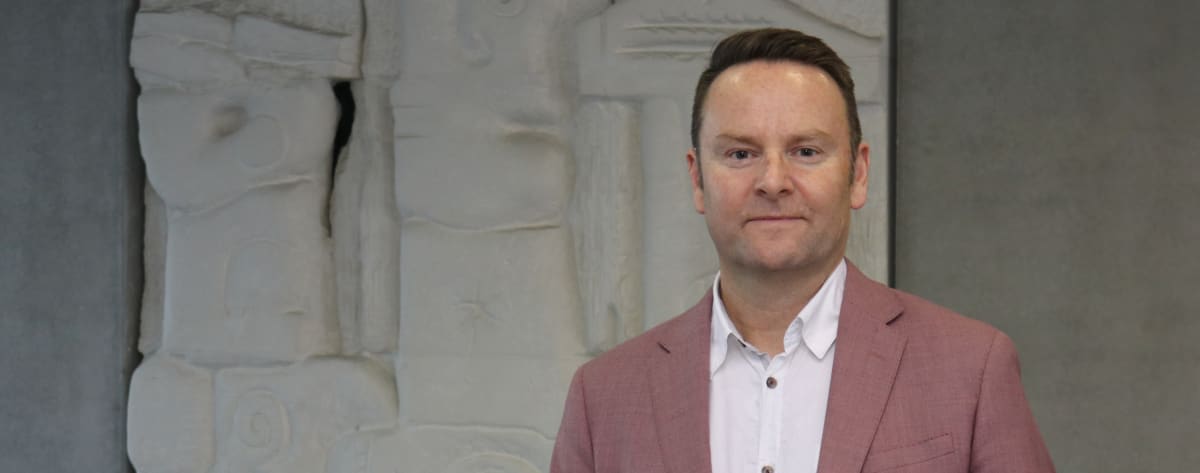
Instead of holding onto young staff in a death grip, one Kiwi business leader is putting on his thinking cap to figure out how the company can make the most of an impending outflow of talent
If you can't beat 'em, release and recapture 'em.
That's the motto of Beca when it comes to dealing with the mass exodus of young talent jetting overseas in search of a hot European summer, cheap beer, and levelling up in their career.
The engineering and consulting firm is setting up an informal talent-sharing scheme which, if successful, will see it collaborate with overseas firms to help fill worker shortages and upskill staff who will bring their overseas working experience home to the company.
Earlier this year, the Ministry of Business, Innovation, and Employment estimated 50,000 New Zealanders will be moving overseas in the next year, flagging the return of the traditional OE as a driving factor.
This ballpark figure could balloon up to 125,000 (with 100,000 of working age) if youngsters champing at the bit head off on their travels all at once, although government officials say this flow could also be tempered by those who are more risk-averse choosing to delay travelling due to the uncertainty caused by Covid-19, the war in Ukraine, and the global economy.
Mark Spencer, group director for building at Beca, has been mulling over this impending outflow of junior and intermediate-level talent, and what it means for parts of the firm under his watch.
Instead of standing helplessly by, Spencer is trying to front foot the fleeing of youngsters and aiming to use it to his firm's advantage by scheming up a "release and recapture" strategy.
He is setting up an agreement with a "like-minded" firm in the United Kingdom, where young talent at each respective company are formally made aware of, and hopefully take up, work opportunities at the sister organisation.

The release part of the scheme will be coupled with the recapture, where the door is pre-emptively opened to those former employees by suggesting they return to work for Beca upon their arrival back in New Zealand post-travel.
Not surprisingly, Beca's 3000 or so staff have largely been loyal over the last couple of years, but Spencer is realistic about the drivers behind staff staying put.
“We’d like to think it's because of a whole lot of stuff we’re doing internally, but undeniably it will be influenced by people’s inability to travel as well,” he says.
Beca has a good presence in the Asia Pacific region, with offices dotted in Australia, Myanmar, Singapore, Thailand, and Indonesia. That means staff with the itch to travel could easily be placed at one of these hubs. However, the company is lacking any offices in the traditional OE destinations in the Northern Hemisphere, such as the United Kingdom.
“They're still at that stage in their career where they're still developing, so they'll get exposed to firms that we respect professionally. We are also able to put the, ‘We would love to see you when you are back’ messaging in there, creating an expectation of returning back to our firm when they come back to the Southern Hemisphere," – Beca's Mark Spencer
So far, the UK partner firm has sent Spencer a list of vacancies across a broad spectrum of roles in its ranks. If this pilot works well, Beca will look at extending it to other multinational firms, as well as testing out more formal staff swaps.
As Spencer puts it, there are a number of advantages in making the OE job search a more “curated experience” for alumni. Staff will get a role in an overseas firm with a similar culture, meaning they will gain valuable experience and potentially come back to Beca with new skills and some good project exposure.
“They're still at that stage in their career where they're still developing, so they'll get exposed to firms that we respect professionally," Spencer says.
"We are also able to put the, ‘We would love to see you when you are back’ messaging in there, creating an expectation of returning back to our firm when they come back to the Southern Hemisphere."
Australasian tech giant Datacom is another organisation looking to manage its outflow of younger workers. Justin Gray, managing director of technology services, says the company is focused on retaining staff and reminding them they can develop their skills while working at the company.
But if a junior or intermediate wants to jet, Gray says the company will support this decision while reminding them the door is always open for them when, or if, they return to New Zealand.
“It’s only natural people want to go and have their OE. We want them to go and get that experience, but then also think about coming back and joining us again.”

So far, Datacom hasn’t seen a stampede of young workers out the door, but Gray is seeing an increase in requests from staff who are New Zealand residents but born overseas and want to work remotely from their home country for an extended period.
“They don’t necessarily want to leave the organisation, but they may want to spend a decent amount of time with family," he says.
"Our working practices and our customers are a lot more flexible than they were [pre-pandemic], so we're getting requests to say “Hey, can I work for three months from here?’."
There are a few complexities involved in these remote working arrangements, such as maintaining information security and keeping in line with international tax laws. Still, Gray says the company is considering these requests on a case-by-case basis and is supporting its staff's wishes where possible.
Mark Spencer is hoping Beca's overseas exchange scheme will also see fresh-faced European engineers filing into the office. But he's not overly optimistic.
“In all reality, I think the flow will be more from New Zealand to overseas. The reality is the OE phenomenon is an Australasian thing," he says.
"There’s not the same drive for people in the UK to travel down here. You do see them, but it’s not in quite the same way, that sort of mid-20s, relatively early in their career, kind of phenomenon.”
He's expecting younger staff will want to stay put in their jobs overseas for at least 12 months to two years.
But what if a two-year OE turns into two decades? Spencer shrugs it off. A former employee in the ranks of an overseas company could turn into a valuable contact when the firm collaborates on projects, he believes.
According to Spencer, the idea has been warmly received by the people he’s spoken to, as UK firms value the pipeline of New Zealand engineers.
“I can't speak for other professions like accounting and law, but [traditionally] they have become accustomed to that Kiwi resource turning up. That hasn't been there for the last couple of years and they're missing it," he says.
The scheme hasn't yet been formally launched at Beca, but has received some interest through word of mouth discussion. With the rest of the world reopening and the aggressive hunt for talent continuing, Mark Spencer is eager to get the scheme working.
“I don't think we've got forever to sort this out. The clock's ticking in terms of pre-empting some people to return who might be thinking of going overseas anyway."







